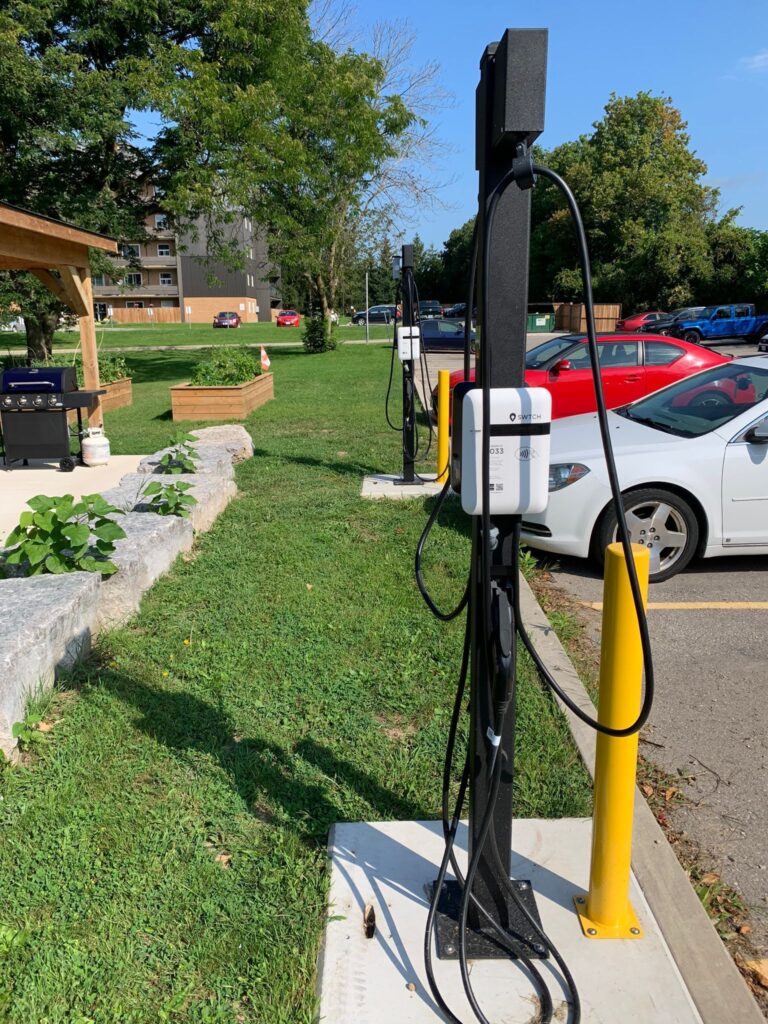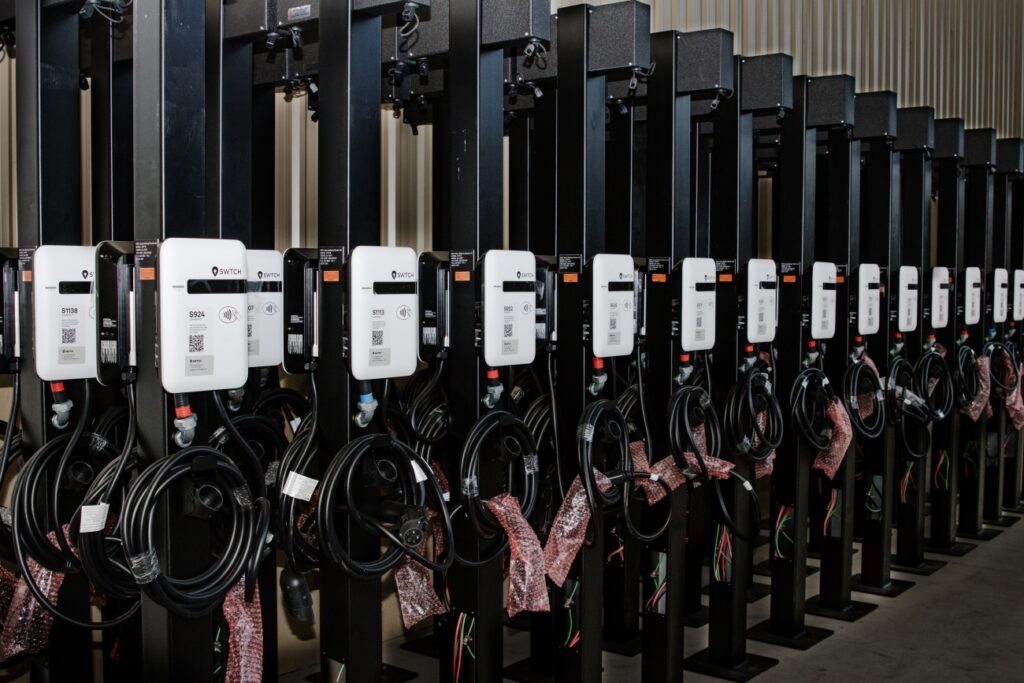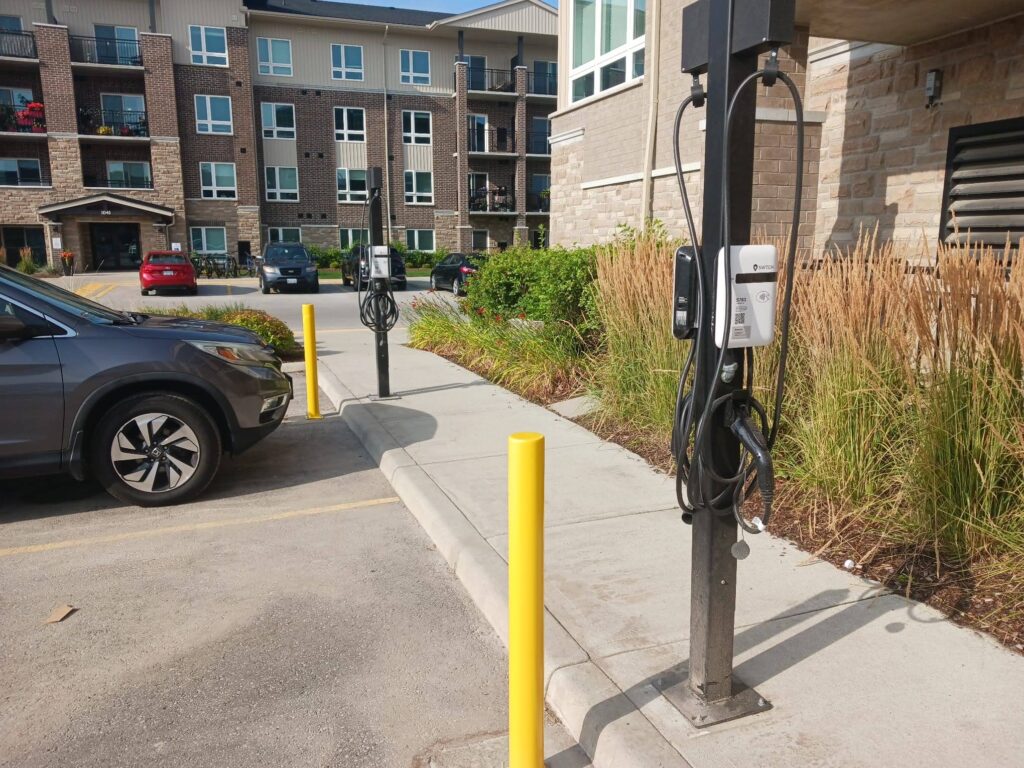To accelerate the adoption of electric vehicles (EVs) in Canada, the Government implemented an ambitious mandate in 2021. This mandate requires a minimum of 20 percent of new vehicle sales to be zero-emission by 2026, with the ultimate goal of achieving 100 percent zero-emission sales by 2035. Despite these aspirations, the practical implementation of widespread EV adoption faces significant challenges.
Similar to other nations committed to decarbonizing their transportation sectors, Canadian drivers frequently encounter obstacles in accessing charging infrastructure at their residences and workplaces. Installing charging stations in multi-residential buildings (MURBs) such as rental apartments and condos with shared parking proves to be expensive, logistically challenging, and confusing for building managers and owners. Consequently, many tenants face difficulties in charging their EVs at home, hindering their ability to effectively use these vehicles.

Recognizing the critical need for widespread charging accessibility, both local and federal levels in Canada are taking steps to address the issue. Several Canadian cities are beginning to mandate that MURBs be electric vehicle-ready, signaling a growing trend.
In response to the charging infrastructure gap, the Government of Canada launched the Zero Emission Vehicle Infrastructure Program (ZEVIP), a substantial $680 million initiative. This program aims to alleviate the shortage of charging and hydrogen refueling stations across the country, encompassing public parking areas, workplaces, and multi-residential buildings.
Anvil Crawler Development Corporation (ACDC) was contracted by Skyline Group of Companies (Skyline) to implement EV charging solutions at Skylines multi-residential properties. These properties, all part of the investment fund Skyline Apartment REIT, cater to over 36,000 tenants nationwide. Through this strategic move, Skyline and ACDC aims to promote the widespread adoption of electric vehicles across Canada.

“It’s taken a lot of dedication and hardwork from the team, our partners at Skyline and our vendors to be able to complete this project successfully. We have learned much through-out the project, especially how to remain agile as an EPC focused in the renewable space and learning how to adapt to this evolving industry. Our unwavering commitment to meeting or exceeding our clients expectations, as well as providing the infrastructure necessary for the zero emission targets of the future has been showcased by this projects successful completion.”
-Aden Pamer – General Manager ACDC
ACDC was contracted to visit over 328 properties to perform an initial assessment of the electrical infrastructure as well as possible locations for the chargers. ACDC also contacted the local utility for each property to obtain the service loading on the building. After presenting our findings and recommendations to Skyline, a master list of properties desired for charger installations was generated. ACDC then began the final design work, procurement and scheduling of the project. ACDC was responsible for all necessary electrical, civil and installation work for each site in order to complete the charger installations and successfully commission them.
During the year 2022, approximately 919 Level 2 SWTCH EV chargers were installed across 208 properties situated in British Columbia, Alberta, Manitoba, Ontario, Quebec, New Brunswick, and Nova Scotia. By July 2023, the majority of these chargers had been successfully deployed, predominantly at apartment buildings nationwide.
“I am proud to see the completion of this project which significantly contributes to Canada’s sustainable future, reaffirming our dedication to pioneering eco-friendly transportation solutions. This achievement demonstrates our teams skill, our partners collaboration and our vendors innovation, firmly establishing ACDC as an industry leader in the EV sector.”
-Kapil Shah – Project Manager ACDC
At the time this was the largest grant ever distributed by NRCan for the installation of EV chargers.

